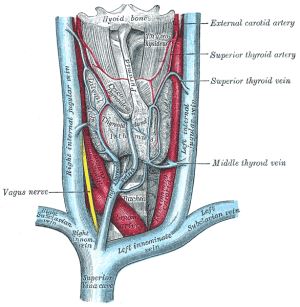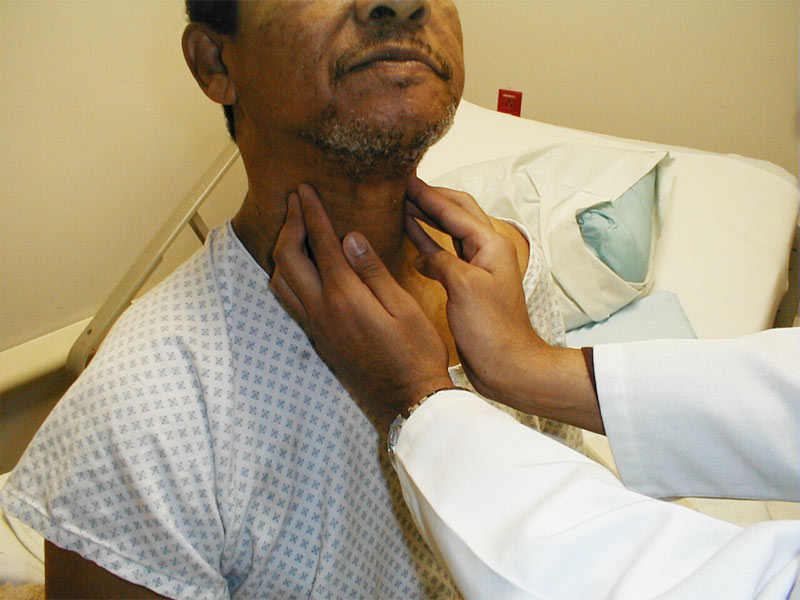Thyroid gland surgery
Thyroid gland surgery is usually conducted when a patient needs to have all, or part of, their thyroid gland removed. For those who aren’t familiar with it, the thyroid gland is a small, butterfly shaped gland that is nestled right in the middle of the trachea.
In general, there are two primary types of thyroid gland surgery. A total thyroidectomy is when the entire gland is removed, and a hemithyroidectomy occurs when only one half of the thyroid is taken out.
The thyroid gland is a member of the body’s endocrine system and its primary function is to control the human body’s metabolism.
When it comes to thyroid gland surgery, there are a few simple things a person should know:
First and foremost, before the operation starts a general anaesthetic will be given in order to promote relaxation. In all cases you will not be awake during the procedure. You will not be aware and will be unable to feel anything.
Thyroid surgical procedure
Surgical incisions are generally made through the front of the neck. In general, this incision will be less than 5cm long. This makes it easier to hide, and the small size ensures that it will heal quickly. Because there are a number of sensitive tissues and nerves located at this juncture in the neck, it is important for the patient to ensure that the surgeon who is conducting the surgery is experienced and well qualified.

The entire procedure can last up to 4 hours, but the thyroid gland surgery will take less time if only a small portion of the thyroid is being removed.
In some cases, a surgeon will need to install a small catheter at the incision site to drain any fluids that may build up, but this installation is temporary. The catheter will usually be removed within 24-48 hours.
If the surgeon who is performing the procedure is experienced, then the side effects from this type of surgery should be minimal. As with any surgery, there is a small chance of developing an infection, bleeding, or having an adverse reaction to the medications.
However, by carefully following a doctor’s post op instructions, most of these conditions can be avoided with ease.
A person who has part, or all, of their thyroid removed is at a greater risk for developing hypothyroidism so they may be required to take daily medication for the rest of their lives.
Thyroid gland surgery is a safe and commonly performed procedure. If you have questions or concerns about thyroid problems see your local doctor who will arrange for you to see a thyroid surgeon.

